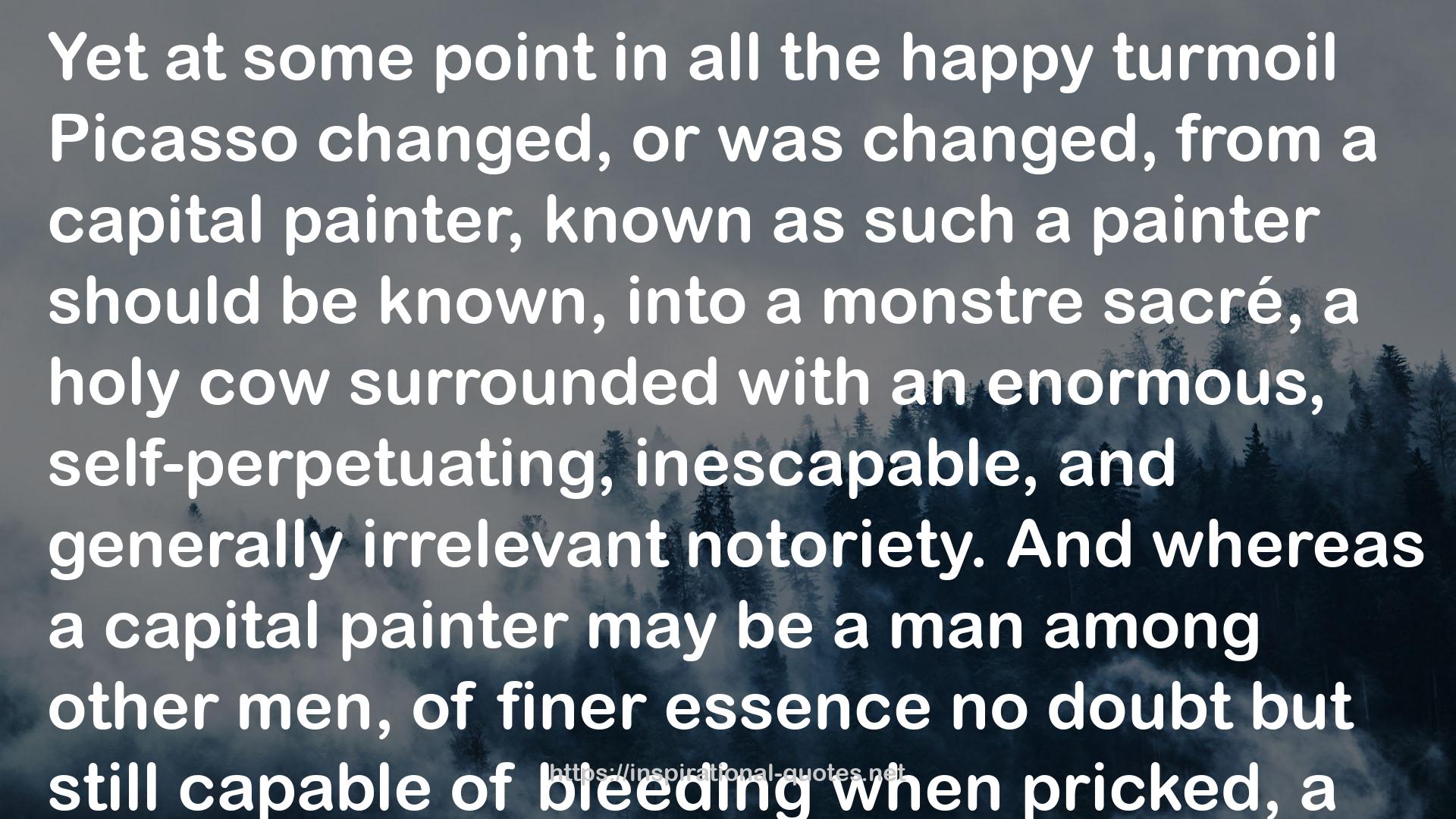" Yet at some point in all the happy turmoil Picasso changed, or was changed, from a capital painter, known as such a painter should be known, into a monstre sacré, a holy cow surrounded with an enormous, self-perpetuating, inescapable, and generally irrelevant notoriety. And whereas a capital painter may be a man among other men, of finer essence no doubt but still capable of bleeding when pricked, a sacred monster may not; and when he is pricked he must ooze gold rather than blood, or at least a kind of contagious fame. To the natural inequality between him and most men is added a factitious and often somewhat tawdry rank: he is never allowed to forget his status and he must live almost as lonely as the phoenix, surrounded by courtiers rather than friends—a hard fate for one who loved company as much as Picasso. The change did not come about at once, and its accompaniment of vast wealth, with all the possibility of corrupting power, authority, and freedom from restraint that wealth implies, was still some few years away, together with his full realization that fame was “the castigation by God of the artist,” and of the fact that a certain kind of fame means solitude. "
― Patrick O'Brian , Picasso: A Biography
